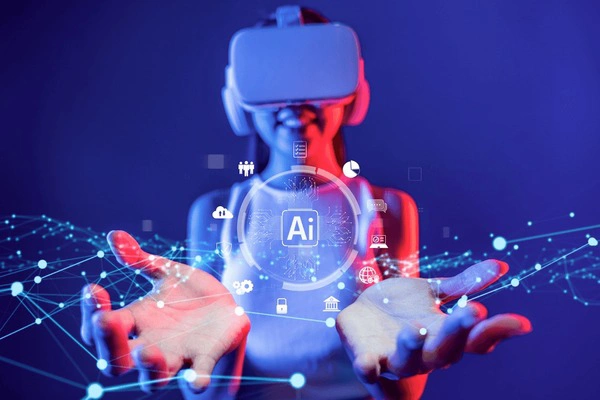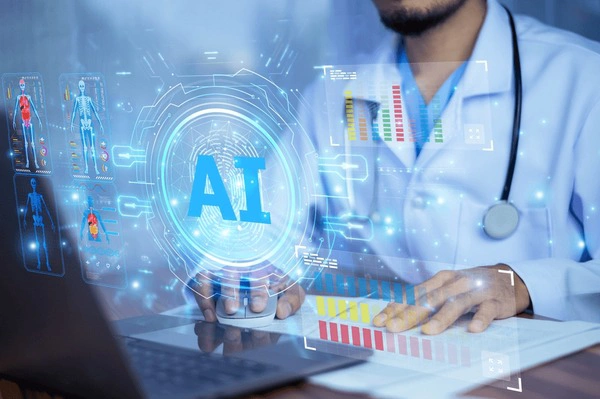
The Role of AI in Personalized Medicine: Tailoring Treatments to Individual Needs
In a world where healthcare is becoming increasingly tailored, AI stands at the forefront, revolutionizing personalized medicine. By analyzing individual patient data and genetic information, AI enables the creation of treatment plans that are uniquely suited to each person, improving effectiveness and minimizing side effects. This innovative approach holds the promise of better health outcomes and greater patient satisfaction, paving the way for a more precise and personalized healthcare experience.
Maya Turner
29/11/2024 - 7 months ago

Understanding Personalized Medicine
Personalized medicine is an exciting and transformative approach in healthcare that focuses on tailoring medical treatment to the individual characteristics of each patient. This concept goes beyond the traditional one-size-fits-all method, aiming to provide more precise and effective care. By considering unique factors such as genetic makeup, lifestyle, and environment, personalized medicine holds the promise of better health outcomes and fewer side effects.
The rise of artificial intelligence (AI) is making personalized medicine more achievable. AI can process vast amounts of data quickly and accurately, helping doctors understand how different patients might respond to various treatments. This capability allows healthcare providers to design treatment plans that are specifically suited to the individual, which can lead to more successful outcomes.
For individuals, this means a more targeted approach to healthcare. Instead of generic treatments, patients receive care that takes into account their specific needs and genetic profiles. This not only enhances the effectiveness of treatments but also minimizes the risk of adverse reactions, leading to safer and more satisfactory healthcare experiences.
How AI Works in Personalized Medicine
AI technology works by analyzing large datasets that include patient records, genetic information, and other relevant health metrics. Using machine learning algorithms, AI can identify patterns and predict how a patient might respond to certain treatments. This predictive power is key to creating personalized treatment plans that are both effective and efficient.
Incorporating genetic information is crucial. Our genes can influence how we react to medications and therapies. AI systems can examine genetic data alongside other medical information to suggest the best course of action. This not only enhances treatment efficacy but also reduces the likelihood of side effects, as treatments are more closely aligned with the patient’s genetic makeup.
Moreover, AI can continuously learn and improve its recommendations. As more data becomes available, AI systems update their algorithms to reflect new insights, ensuring that the treatment plans remain current and evidence-based. This dynamic capability of AI helps in refining the precision of personalized medicine over time.
Benefits of AI in Personalized Treatment Plans
One of the most significant benefits of using AI in personalized medicine is the increase in treatment success rates. By tailoring treatments to fit the unique needs of patients, healthcare providers can significantly improve the chances of recovery and wellness. This personalized approach is particularly beneficial for managing chronic diseases and conditions that require long-term care.
Another advantage is the reduction in healthcare costs over time. While the initial setup of AI systems can be costly, the long-term benefits include fewer hospital visits, reduced need for ineffective treatments, and minimized side effects. Patients receive the right treatment the first time, which can lead to savings for both healthcare systems and patients.
Additionally, AI enhances patient satisfaction by providing care that feels personal and attentive. Patients are more likely to follow through with treatment plans that are customized to their needs, leading to better adherence and improved health outcomes. This personalized approach fosters trust and engagement between patients and healthcare providers.
Challenges and Future Prospects
Despite the many benefits, there are challenges to implementing AI in personalized medicine. Data privacy is a significant concern, as sensitive patient information must be protected from breaches. Ensuring robust security measures is essential for maintaining trust and compliance with legal standards.
Another challenge is the integration of AI into existing healthcare systems. Healthcare providers need training and resources to effectively use AI tools. Additionally, there must be collaboration between technology developers and healthcare professionals to ensure these tools meet clinical needs and improve patient care.
Looking to the future, the role of AI in personalized medicine is expected to grow. As technology advances and more data becomes available, AI systems will become even more accurate and comprehensive. This progress will likely lead to more widespread adoption and innovation in personalized care, ultimately transforming healthcare delivery into a more precise and patient-centered system.


















